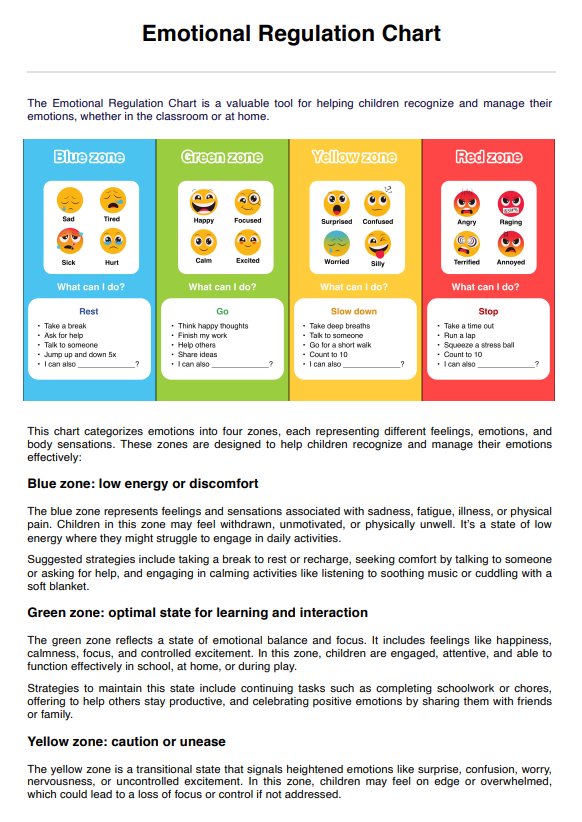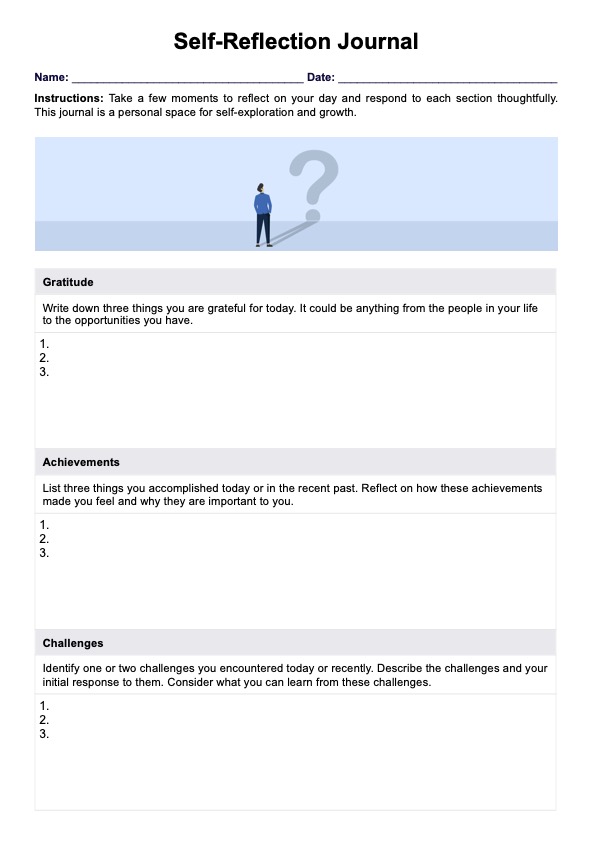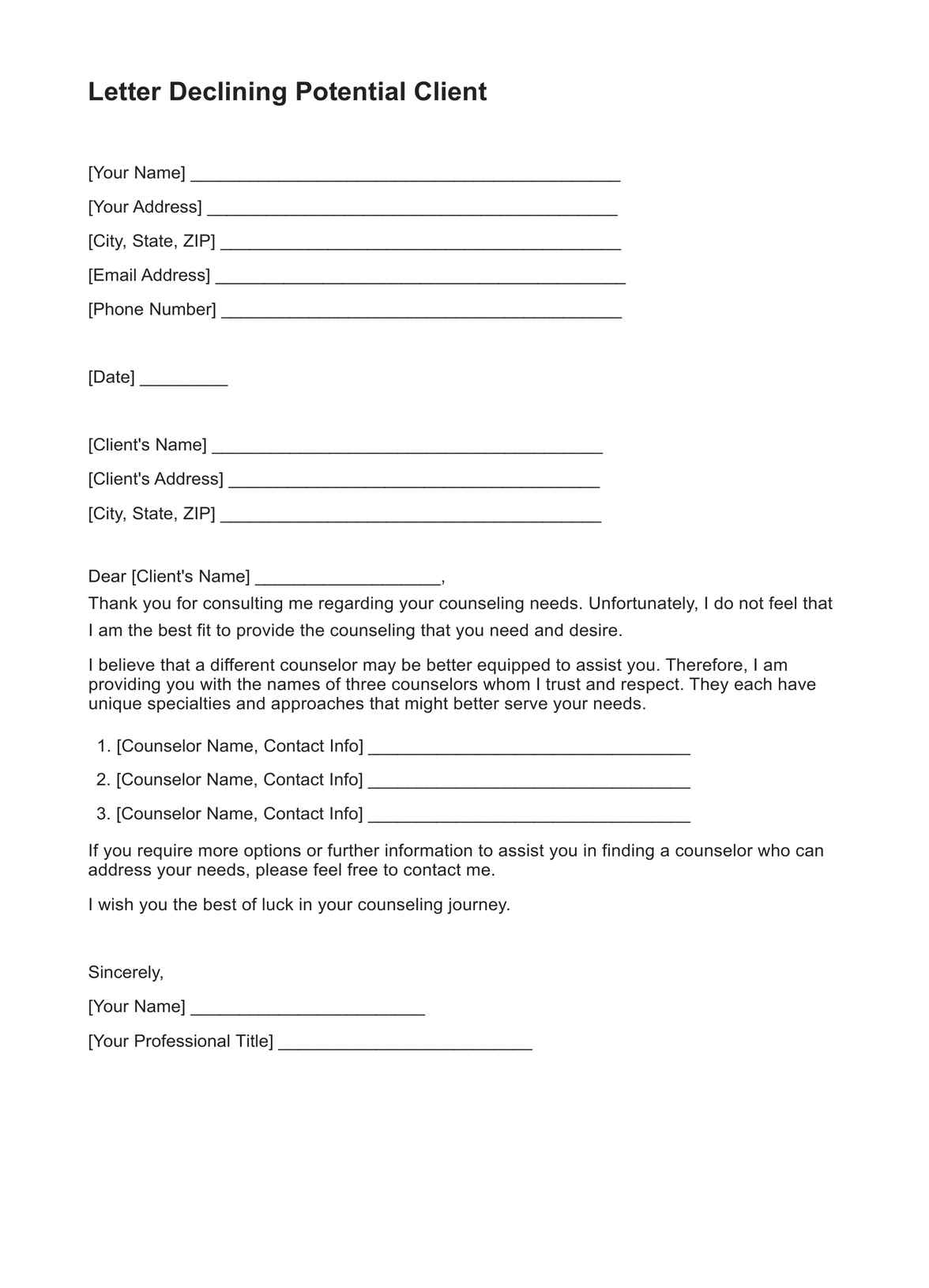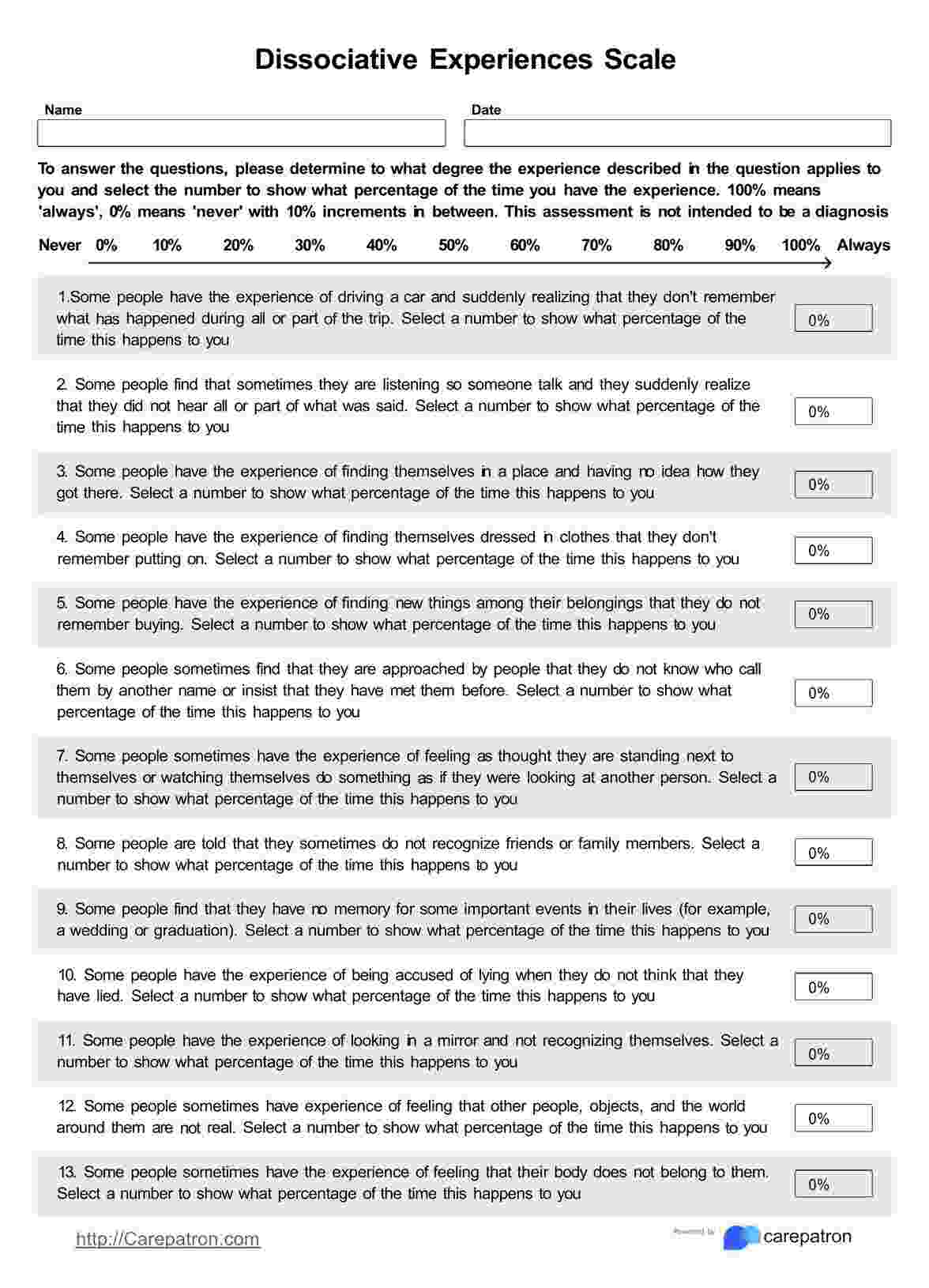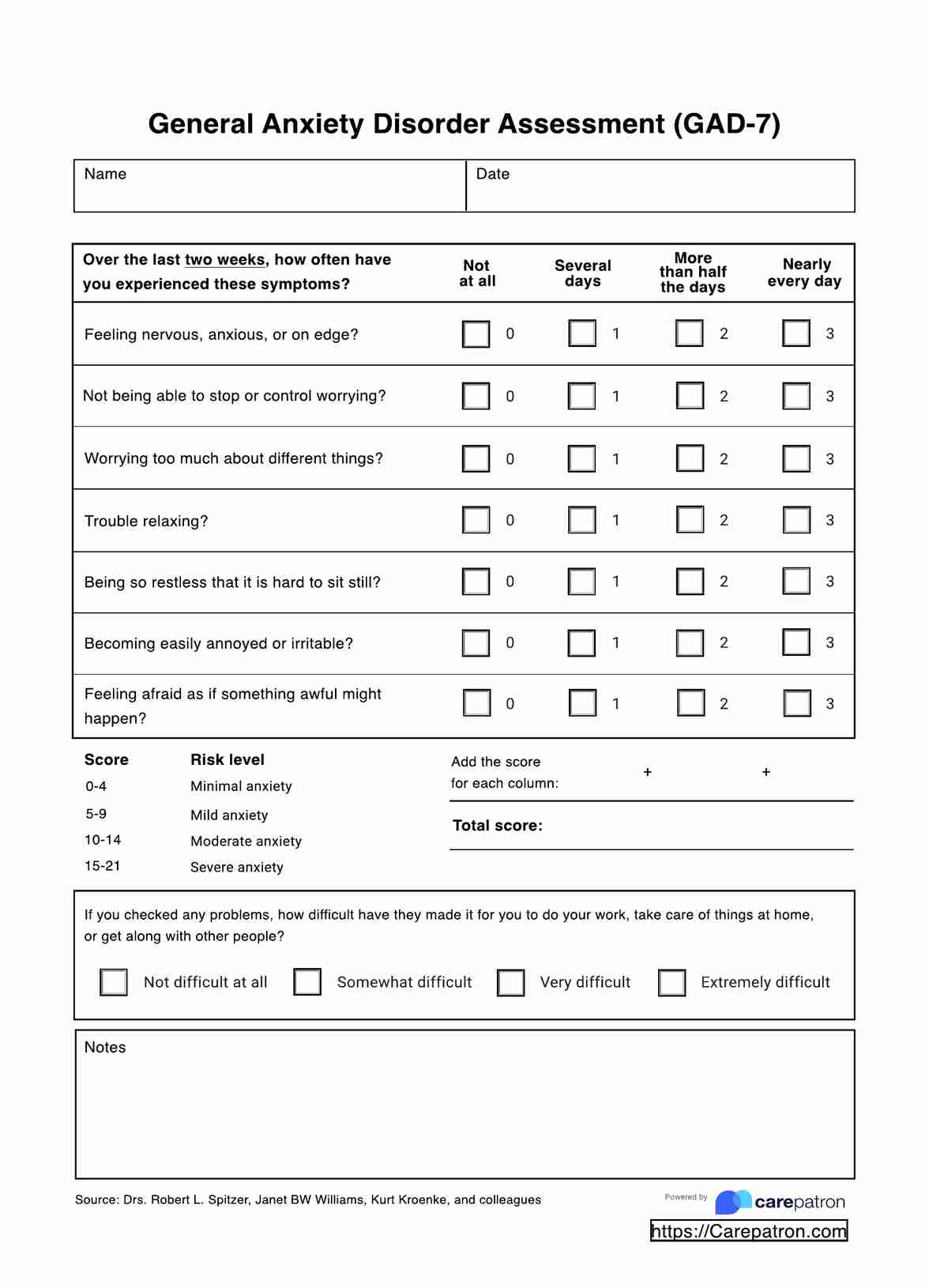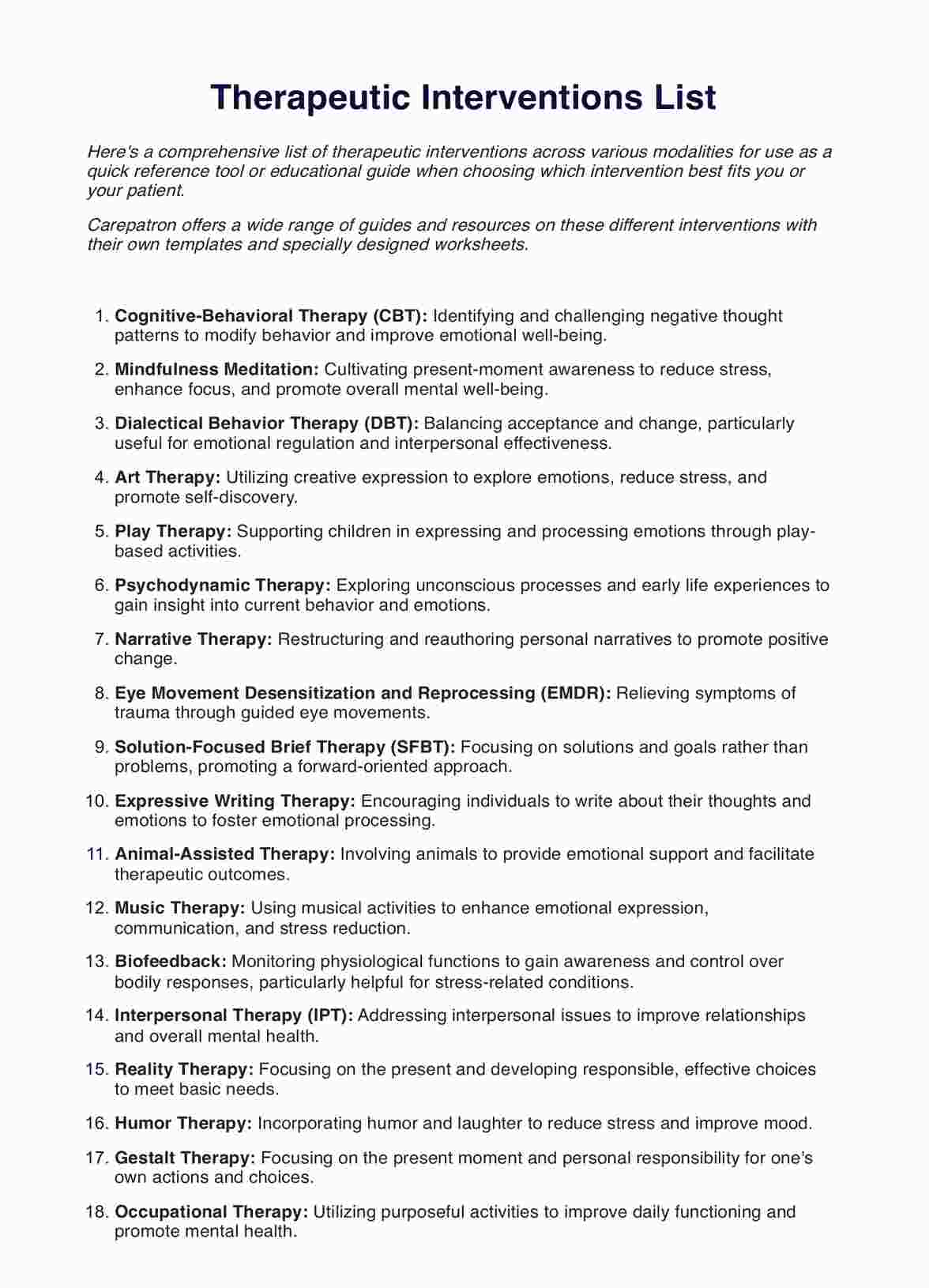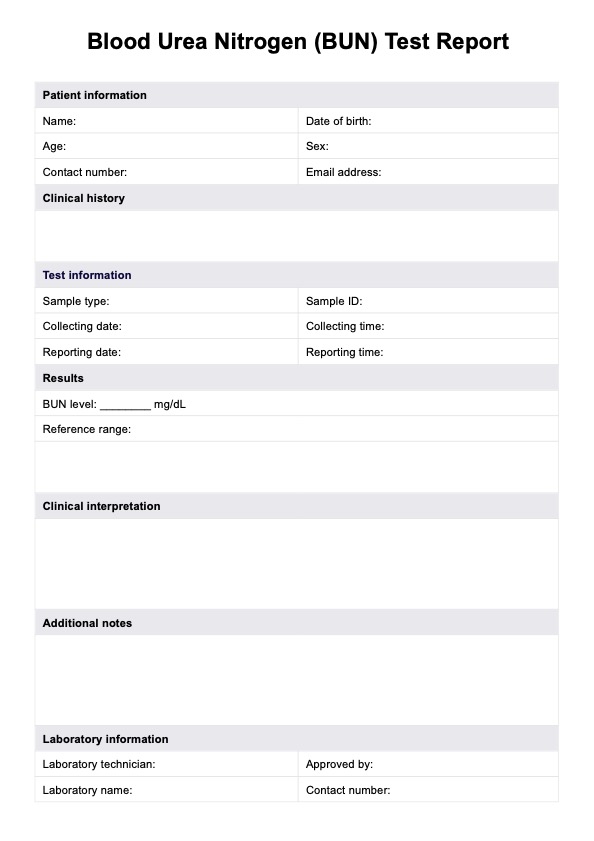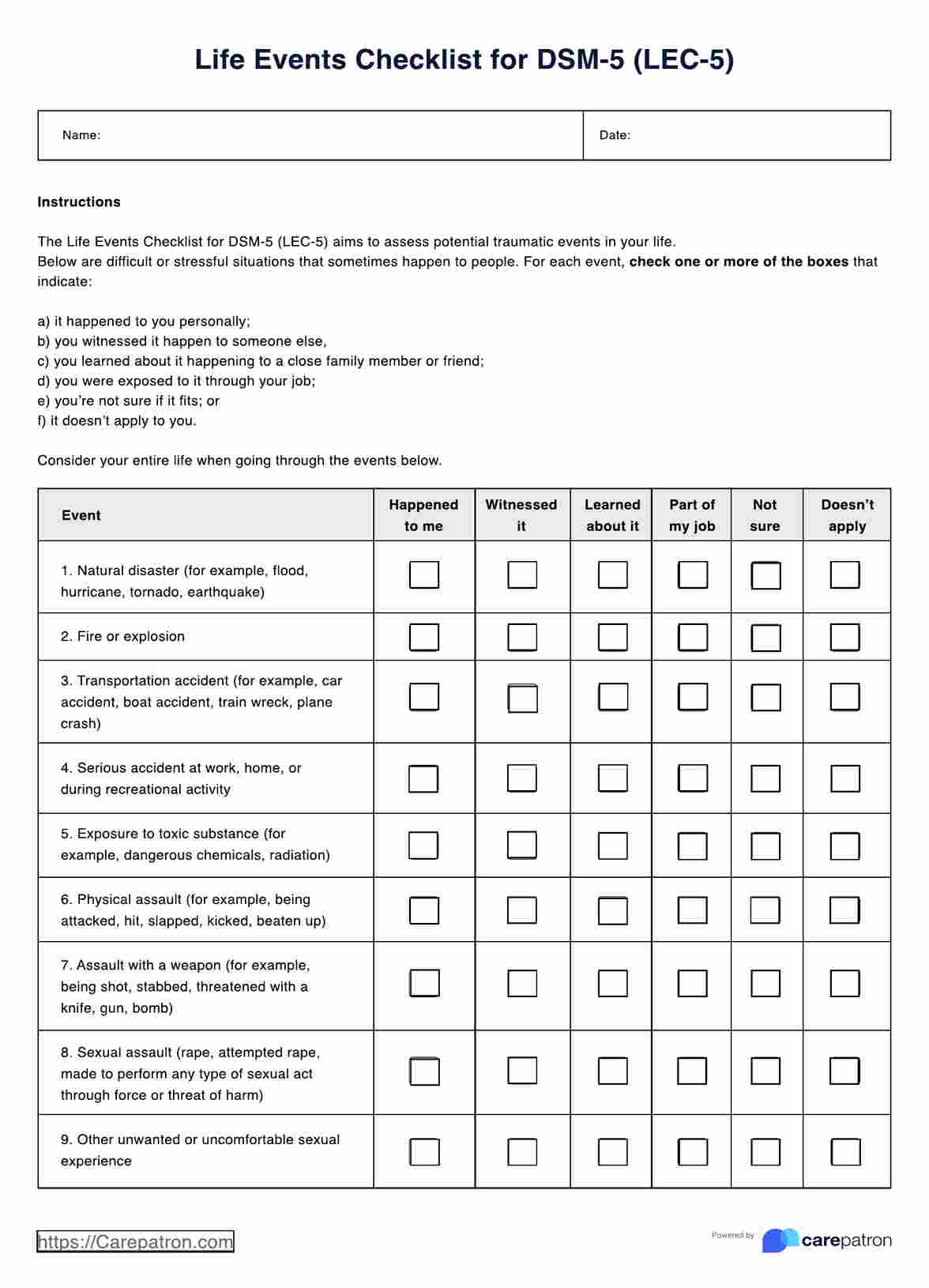Anger Coping Worksheets
Help your patient with anger management by having them use this anger coping worksheet from time to time!


What is anger management?
Anger is a natural human emotion that responds to various triggers or situations. It can range from mild irritation to intense rage and may be prompted by frustration, perceived injustices, or personal stressors. While anger is a normal emotional response, it becomes a concern when it is excessive, uncontrolled, or negatively impacts one's life, relationships, and well-being.
Anger management is learning how to control anger and express it in a healthy way to stay calm and handle situations without getting overly upset or aggressive. Anger can often be a byproduct of other mental health conditions such as PTSD, depression, anxiety, or grief and an individual can benefit from cognitive therapy for these issues.
CBT is a powerful tool for managing anger to avoid relapse. It helps individuals build self-awareness, acquire practical skills, and develop a more adaptive mindset, crucial in maintaining sobriety while effectively managing anger and the associated triggers.
A meta-analysis highlights the efficacy of CBT-based anger management interventions in reducing both general and violent recidivism rates among adult male offenders, especially with completed treatment. Moderate-intensity programs show superior effectiveness compared to high-intensity correctional programs in reducing violent recidivism (Henwood et al., 2015). CBT's evidence-based nature and focus on tailored goal-oriented therapy make it an invaluable resource in addiction recovery and anger management.
Anger Coping Worksheets Template
Anger Coping Worksheets Example
What is an Anger Coping Worksheet?
Anger Coping Worksheets, similar to anger management worksheets, are tools that therapists can use to help clients identify what triggers their anger, how they respond to it, and how they cope.
The Anger Coping Worksheet is like a journal or short-form diary, which is typically part of an anger management workbook that a therapist's clients can fill as they go through an anger management program. Our worksheet has four parts:
- The checklist of general triggers
- Possible activities that they can do to calm down and relax
- A journal section with entries for seven days where they can indicate what triggered their anger, how they responded to that anger, what happened after they expressed their anger, and what they tried to do to calm down (and if it worked or not)
- A small field where they can indicate any patterns in their anger that they noticed
It's a nifty writing exercise that counselors can give their clients to help them better understand how they process their anger and formulate possible directions for managing their rage.
How do I use this Anger Coping Worksheet?
The thing with the Anger Coping Worksheet is that it helps clients recognize anger triggers and find ways to express angry thoughts and feelings in healthy ways. Follow the steps below to use the worksheet:
Step 1: Download the worksheet
Download the worksheet using the link on this page. You may store it digitally or print it for your clients.
Step 2: Identify general triggers
Instruct clients to tick the boxes on the general triggers list. It will be easier for them if they are aware of their current triggers.
Step 3: Read the list of activities to try
The second part is a list of possible things they can do whenever they experience anger to feel calm. They don't have to write anything down for this section; instead, they can use it as suggestions for calming and relaxing activities.
Step 4: Write anger-related experiences
The third section contains mini-journal entries with four parts and guiding questions to help clients articulate their experiences: identifying the trigger (what exactly happened to make them feel angry), describing their response (how they reacted, such as lashing out or walking away), noting the outcome (the result of their reaction, like an argument escalating or a prolonged silence), and detailing the coping activity (what they did to calm down and relax). Additionally, clients reflect on an alternative response, considering what they might have done differently regarding their anger.
Step 5: Indicate any patterns related to anger
The client should note any patterns they observe regarding their anger. They might describe the physical signs they notice, how they manage relationships, and how they express their emotions.
Who can use this printable Anger Coping Worksheet (PDF)?
Knowing how to manage anger is an essential skill for both old and young people. This worksheet can be used by anyone working on their anger management, whether through the help of an anger management therapist or on their own. The specific healthcare practitioners that are likely to gain benefit from implementing this resource include:
- Therapists
- Counselors
- Psychologists
- Social Workers
- Psychotherapists
Although this resource is designed for clients struggling with anger management, it is also helpful for those without specific anger management issues. Additionally, it can be used in stress inoculation training to help clients manage stress.
Why is an Anger Coping Worksheet helpful for therapists?
It is valuable for therapists as it provides deep insights into their client's emotional patterns and responses. Here's how it helps:
- Gauge client's anger patterns: Reviewing a filled-out worksheet helps therapists identify common triggers and emotional patterns.
- Understand client's reactions: Mini-journal entries provide detailed accounts of their responses to anger, including what they did while angry.
- Assess coping mechanisms: Entries can show therapists how clients calm down after an anger episode.
- Evaluate alternative responses: Clients reflect on what they would have done differently, offering therapists insight into their thought processes and potential areas for improvement.
Based on the client's entries, therapists can determine the best ways to help them manage their anger and provide personalized suggestions for improvement.
Using this action plan template can elevate your practice and client outcomes. This tool aids clients in creating actionable plans for progress.
Reference
Henwood, K. S., Chou, S., & Browne, K. D. (2015). A systematic review and meta-analysis on the effectiveness of CBT informed anger management. Aggression and Violent Behavior, 25(B), 280–292. https://doi.org/10.1016/j.avb.2015.09.011
Commonly asked questions
An Anger Coping Worksheet is a nifty way for clients to step back, examine the different things that trigger their anger, and hopefully find avenues and solutions to combat anger.
Anger management therapists issue these to their clients to help guide them through their anger management process. Clients will engage with this tool the most because they will use it to track what has made them angry and what they could do differently to avoid unfavorable situations caused by their anger.
An anger management therapist can issue an anger coping worksheet to their clients during their anger management processes. The client will engage with the worksheet when prompted by the therapist. Or, in the case of this Anger Coping Worksheet, they will engage with it on their own since it's a log of their bouts with anger.

.jpg)
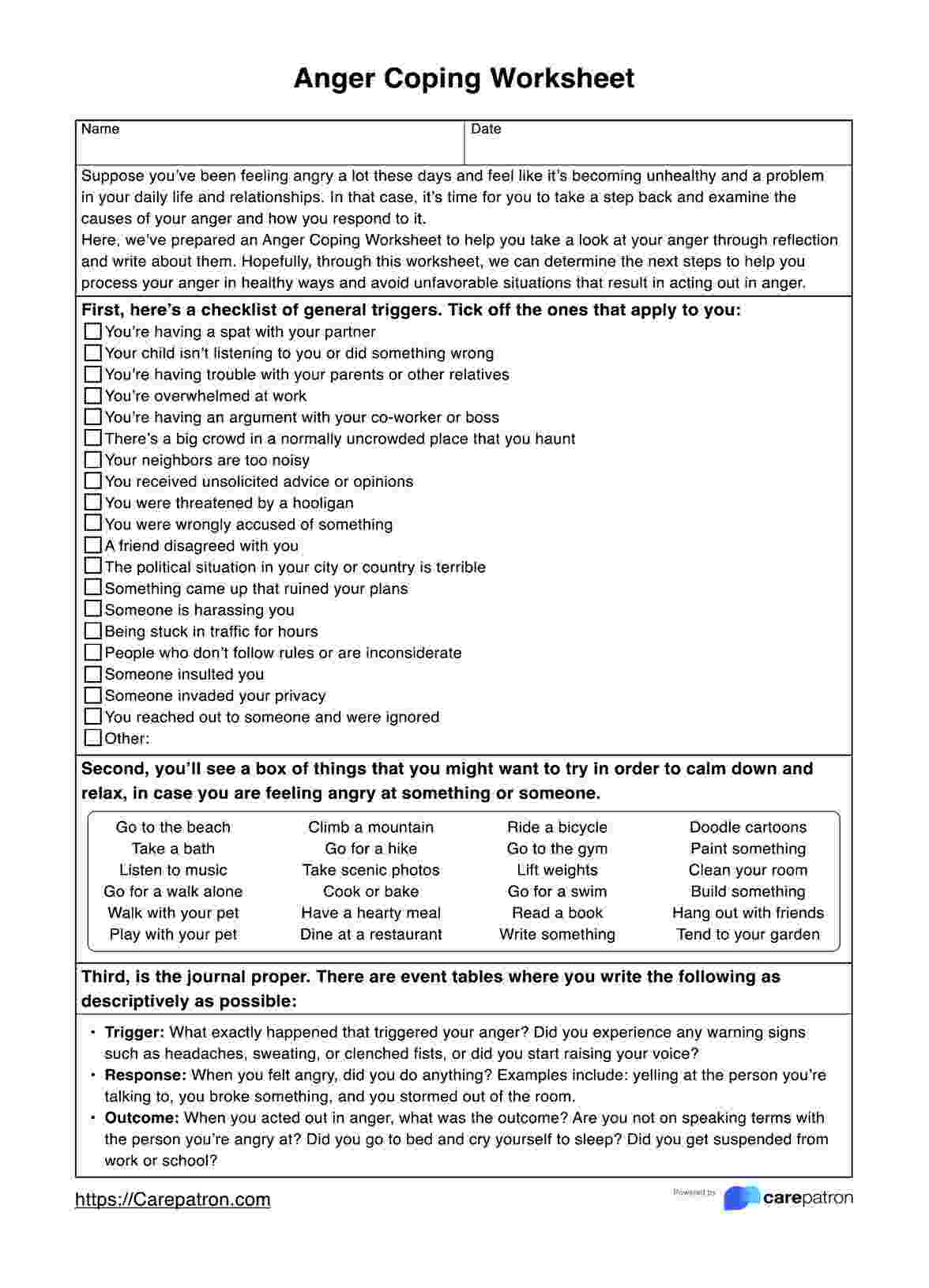
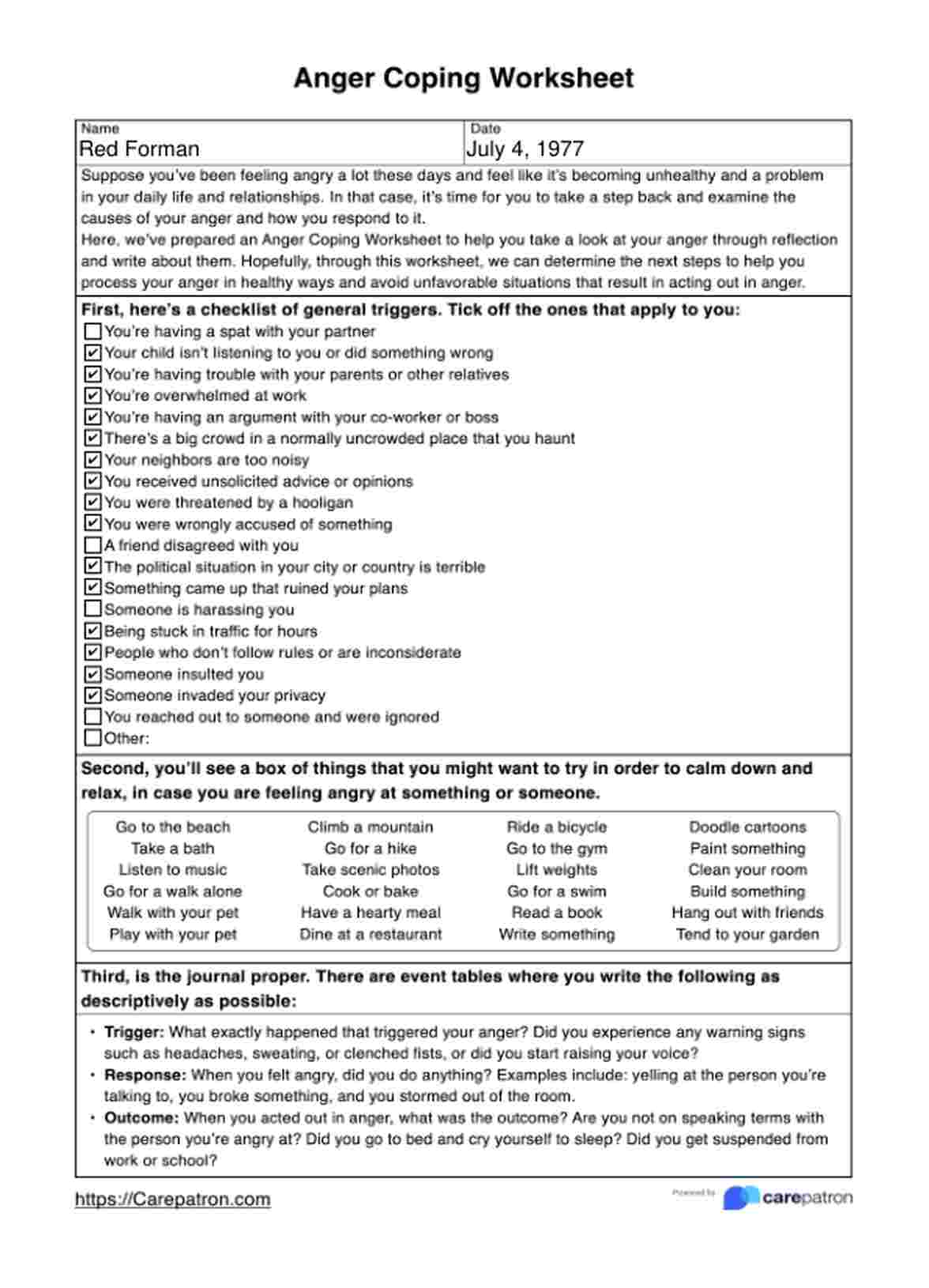















-template.jpg)






